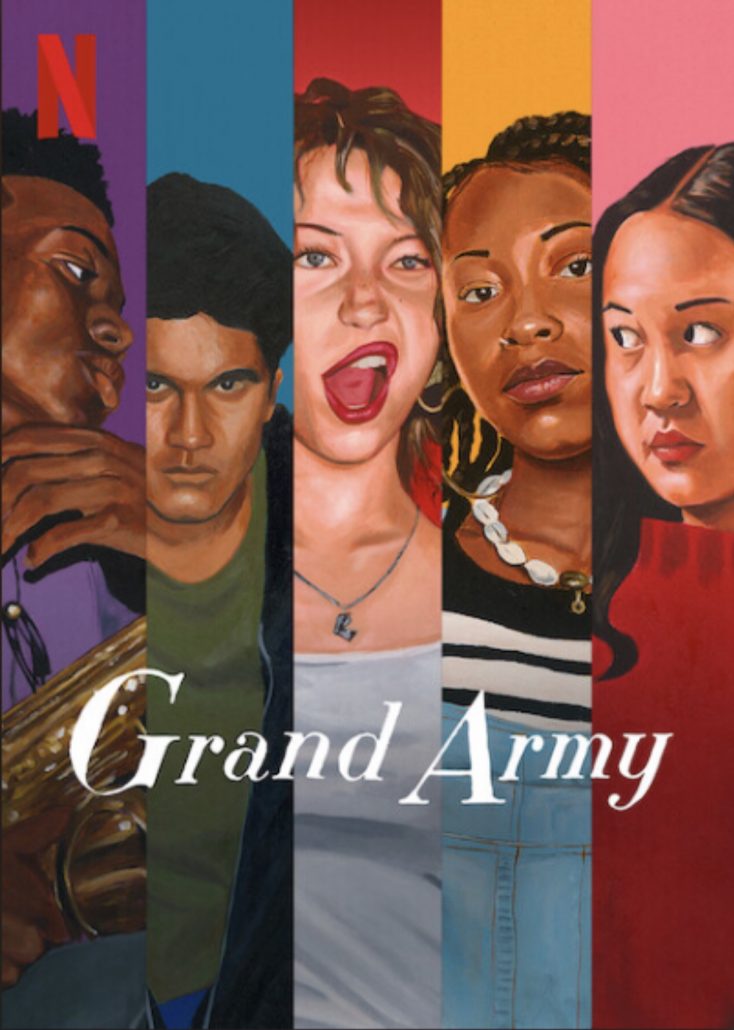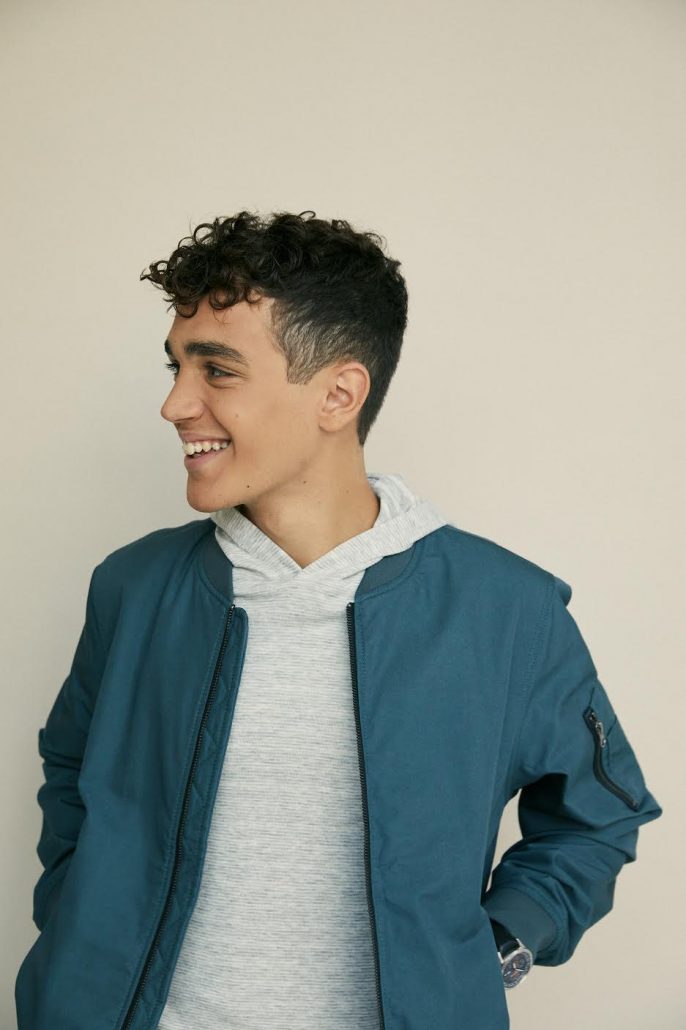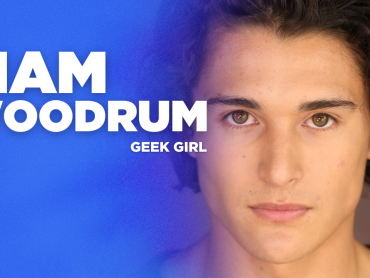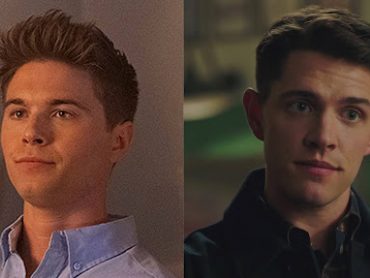David Iacono is becoming Netflix’s lucky charm. He can be seen in two new Netflix projects: Social Distance and Grandy Army. David Iacono will also appear in Kaley Cuoco’s new HBO Max series The Flight Attendant. Not only is David Iacono an actor, he’s also interested in making art behind the scenes like writing and director. Here, David Iacono talked to YEM about his acting career and what’s ahead for him. He even shared what it was like filming in his hometown of Brooklyn.
Young Entertainment Mag: What made you decide to pursue acting?
David Iacono: When I was around 2 or 3 years old, I was a child model for different print magazines just because my mom thought I was a cute kid. Growing up, it was just something I’d do after school. But eventually, being involved in the print industry somewhat intertwined with involvement in the acting industry. So I’d go out on a few auditions here and there, mostly for commercials, and an independent film or two.
It wasn’t really until I got to high school that I discovered the actual passion I had for the business. I auditioned and got into LaGuardia High School for Music and Art & Performing Arts in Manhattan, and there I was able to truly dive deep into what acting meant to people, and what it meant to me. It was also at LaGuardia that I realized that acting didn’t have to just be an afterschool activity; it could actually be a valid career choice, in addition to teaching me a vast array of life skills. And not only that, but it could be a really rewarding creative outlet.
YEM: Tell us about your character Bo Orlov from Grand Army.
David: Orlov’s a sophomore at Grand Army on the school’s swim team. He often finds himself being made fun of for being dyslexic. So he’s constantly in the mindset of having something to prove. He’s also one to mess around during practice, even though he’s one of the strongest swimmers on the team. Bo’s also not as politically correct as most people might prefer. And he doesn’t really care that much, being from a neighborhood like Brighton Beach as opposed to the more progressive areas of New York City. But yeah, because of his upbringing, Orlov’s pretty rough around the edges. Which causes him to be at the cause of a lot of turmoil as the season progresses, particularly involved with Sid’s storyline.
YEM: Your character is kind of an antagonist in Grand Army but we see glimpses of his vulnerabilities. What are some insecurities Orlov has? And why are they important to his character and what he does on the show?
David: Like I mentioned earlier, Orlov’s pretty insecure about his dyslexia and the learning disabilities that come along with it. Especially being at a school as rigorously academic as Grand Army, Bo’s always thinking about what everybody else is thinking about him. And when someone is so frequently worried about proving their worth, they’re more likely to act out, and to break out of the (negative) impression they assume everyone has of them. So Orlov acts on impulse, actively pushing people and testing their limits. As season one moves on, his impulsive behavior and actions bubble to the surface more and more. And he’s forced to deal with the consequences the only way he knows how: with force, aggression, and bluntness. Now at the end of the day, Orlov’s actions aren’t anywhere near justifiable–he’s an asshole. But the way he acts doesn’t exactly come from a place of evil.
YEM: Most of the leading roles in Grand Army are cast with actors and actresses of color. Why is that kind of up-front representation important?
David: Acting and storytelling are such valuable tools we have to express ourselves as people and as artists. So when you look on TV or at a movie screen and see somebody that looks like you, or talks like you, or simply behaves similarly to yourself based on the culture you were raised in, it encourages you to give it a shot yourself. An outlet to express yourself is so important. And it’s necessary for everyone in the world to feel as if they have the option of doing so through film, TV, or theatre.
And not only is it important for people to feel as if they have the option to have said creative outlet. It’s important for stories from all corners of the world to be told in general. Especially because our society places such value and emphasis on TV and film. Of course, this all comes from a guy who’s HAD the privilege of seeing people like him on screen growing up. And I in no way mean to speak on behalf of anybody else. Nonetheless, I’m aware of just how much representation in art matters. And we’re only JUST scratching the surface. We’ve come a long way, and Grand Army is such a large stepping stone on that ongoing journey.

YEM: There are some intense issues addressed in Grand Army. Why is it important to portray issues like sexual assault, systemic racism, bullying, political activism, and homophobia on screen for a YA demographic?
David: No matter how many times you hear it, and no matter how cliche or cheesy it may sound, kids are quite literally the future. Anyone that’s opposed to portraying as intense issues as Grand Army does on screen for a YA demographic is clearly disillusioned with just how much information our generation has access to, thanks to the internet. Social media allowed everybody my age to become aware of such issues like sexual assault, systemic racism, and homophobia. And through the lens of trying to solve these ills. So to then enter the world of TV and film and pretend like kids my age and younger are completely unaware of the stuff that goes on in the real world instantly creates the idea that these issues must be considered taboo.
When a young adult turns on the TV and watches a show that’s meant to be portraying their own lifestyle, and sees a world of censorship, it makes them see the issues they’ve been made aware of on the internet as problems that can just be swept under the rug, all because they may make people uncomfortable. As Katie Cappiello, showrunner and creator of Grand Army, always says, it’s good to make people feel uncomfortable. Because hopefully it’ll get them thinking. Grand Army genuinely and ever so clearly presents its audience with a mirror. As to say, “This is what’s going on. These are problems, but here’s where they come from. What’s the next step?” Plus, it does so in such a beautifully entertaining way that doesn’t feel like a lecture.
YEM: What was it like getting to film a project in Brooklyn close to where you grew up?
David: Personally, all the shooting I did for Orlov was done in Toronto. But I did come to set when the cast was shooting in Brooklyn. And what a surreal experience was seeing the family I’d met over the summer do their job in my home. Seeing everybody come together to bring the authenticity off the page and onto screen in the place I love so much was kinda overwhelming to be honest, but in the best way possible.
I distinctly remember sitting on a cast chair in the middle of a subway station like 10 minutes away from my house, thinking, “I’ve never sat still in a subway station for this amount of time in my entire life.” Definitely a collision of worlds… It felt like when two Disney shows would do a crossover episode where the characters would interact and an entire new dimension was created. But in all seriousness, I was so honored to be a part of a show that took pride in its Brooklyn roots. Especially considering the setting of New York City is almost like its own character in Grand Army.
YEM: What’s one of your favorite memories of working on Grand Army?
David: Funnily enough, despite all the fun times everybody shared on and off set while shooting and even after shooting ended (because we still talk like every single day), my favorite memory to actually think about is the first day I met some of the cast. We were all sitting in a waiting room on a lunch break in between scenes. I’d been sitting with my mom at our own little table. And some of the guys who played characters on the Grand Army swim team, including Brian Altemus, Anthony Ippolito, and Amir Bageria (Luke, George, and Sid), and Maliq Johnson as well (Jayson Jackson) were sitting at their own table a couple feet away.
They’d been shooting a little longer than I had–like I said, it was my first day. I remember seeing them all hang out and talk about whatever. And I really wanted to go over and hang out, but I was mad nervous. I felt like I was back in actual high school and it was the first day of school in the cafeteria. That’s a testament to just how much set was like an actual New York City public high school. Anyways, eventually one of the guys invited me over to eat with them, and of course we immediately clicked. It’s a moment that most of the guys probably don’t even remember. But I love looking back on it and seeing just how welcoming everybody was. And how quickly we were all able to become family.
YEM: What was it like doing a remote project like Netflix’s Social Distance? How was that a different experience?
David: As I’m sure most kids my age were, during early quarantine I was sitting on my butt for most of the day. My sleep schedule had fully turned me into a nocturnal being. And I played Fortnite with my boys for a majority of the hours that I was awake. So when I booked Social Distance, not only did I gain somewhat of a routine for a week or two to set me back on track, but it was the most relevant routine I could’ve ever even dreamed of. It was literally a script that outlined exactly what I’d been doing before I booked it (minus a few crappy details about my character…watch episode 7 to find out!).
But yeah, as you mentioned, we shot the entirety of the show remotely from our homes. Which was wild in nature, but it also just felt so good to be working again after the entire world had been shut down for a couple months already. The job was also a little more rewarding than any other job I’d ever experienced. Because not only was I an actor on the project, I was also a set director, a sound guy, a gaffer, and the camera guy.
Of course, the team at Social Distance made it as seamless as they possibly could. But I still had to juggle a bunch of different things, which gave me a really valuable glimpse into what it means to be working as something other than an actor on set. Such an unforgettable experience. And so proud to say I worked on a piece of art that can one day be viewed as a period piece.
YEM: You plan to attend school to study filmmaking. What other film roles would you like to tackle besides acting?
David: I’d really really really love to get behind the camera. I know a lot of people, actors specifically, end up saying that at some point because they grew up around film cameras most of their lives. But I genuinely believe I have the eye for it. For my own, new kind of vision, too, which I can’t wait to start proving to the world and myself, honestly.
Being an actor most definitely informs and instructs being a director. As any good director is aware of how important it is to clearly, openly, and vulnerably communicate with their actors. And I’ve always been a storyteller ever since I was a little kid. I even have notebooks full of ideas, so writing’s also something I can’t wait to tackle. I wanna start making some original content. Because it’s so easy to get caught up in the sequels and remakes and reboots today. Not that there’s anything wrong with that stuff, because I’m a huge fan of most of it. But I think there’s some real merit in creating something completely new and unadulterated.
I also have an odd passion for editing. There’s something really therapeutic about sitting down for hours and bringing puzzle pieces together. Can’t wait to either get to school or just learn on the job. Because they have equal learning opportunities in my eyes.
YEM: Do you have any dream projects you’d want to do in the future?
David: CAST ME AS A SUPERHERO!!!!!! PLEASE!!!! Seriously, I grew up on the Marvel Cinematic Universe, obsessing about it throughout most of middle school and all of high school. I appreciate what those movies did for me (and so many other people) so much. They really brought such joy to so many lives, whether it be artistically or just as an average viewer or as a means of escape, or whatever it was for any given audience member. Plus, I would have the time of my life shooting something like that. Man, that would be so indescribable.
Acting and storytelling are such valuable tools we have to express ourselves as people and as artists.
YEM: What do you enjoy doing in your free time when you’re not working hard on set?
David: Like I said earlier, I’m always writing ideas down, whether it be for a movie idea, a TV scene, a sketch, or a stand up bit. I got a whole bunch of ideas, just waiting on the right one to come along to make my first creative move with. Acting’s probably the biggest part of my life right now. But when it’s not, I’m either spending time with family or friends.
Keeping a close knit circle’s always been pretty important to me. I also love to swim whenever I can (which is typically only during the summer). It’s really my place to escape and relax for a while. I grew up swimming competitively and playing baseball. So those are definitely my outlets when acting gets to be too much. So yeah, I’m either acting, writing, hanging out with family, or in some type of body of water. Life’s so great right now, and I’m so blessed.





